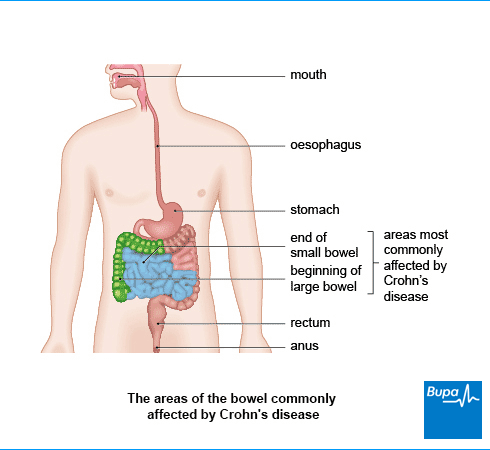What Are the Signs of Crohn's Disease to be on the Lookout For?

There are various signs that may have Crohn's disease but it's important to realize that just because you experience one or more of these, doesn't necessarily mean that you have it. Some of the symptoms mimic those of other health conditions, which is why it's important to get a proper diagnosis.
At any rate, this is a good starting point to learn a little bit about the disease so you have an idea of what it is all about. These are the main signs of Crohn's Disease....
Crohn's Disease General Signs
As Crohn's can elicit symptoms anywhere in the body, as opposed to ulcerative colitis which only affects the colon, there is no one set of signs that applies to all sufferers. As such, it is very difficult to diagnose. However, there are some general symptoms that most Crohn's sufferers do experience at one point or another.
The general signs are:
- Stomach pains and cramping
- Increased instances of diarrhea
- General lack of energy
- Loss of weight
As far as the stomach pain, it's usually centrally located but can be felt towards the right side as well, and is usually worse following a meal, especially a heavier one. You might feel very bloated, however if the swollen area is very tender and painful, there could be a blockage or infection so that shouldn't be ignored.
Crohn's Signs When the Colon is Affected
When your colon is affected by the disease, it is called Crohn's colitis, and the signs and symptoms will vary depending on where exactly along the colon the problem lies.
The colon-related signs are:
- Cramps and diarrhea (Right side)
- Blood in the stool (Left Side/Most of Colon)
- Abdominal pain/sounds, bloody stool, rectal pain, fever, weight loss, malnutrition (Rectum)
Crohn's Signs When the Small Intestine is Affected
When the small intestine is affected, the condition is called small bowel Crohn's. The most common signs of Crohn's of this type are:
- Cramps
- Diarrhea or Constipation
- Weight Loss
Crohn's Signs When the Ileum and Colon Are Affected
The lower part of your small intestine is called the ileum, and this is where it attaches to the colon. If you have Crohn's disease of the colon and the ileum, you may experience the signs of Crohn's disease of the colon and the small intestine at different times.
Crohn's Signs When the Stomach or Duodenum Are Affected
Those with Crohn's of the stomach or the duodenum (part of the small intestine closest to your stomach) might not experience any symptoms. However if they do occur it's usually in the upper abdominal area when the person eats a meal. These are some of the signs that your stomach is affected:
- Nausea
- Vomiting
- Weight Loss
- Decrease in appetite
Other Areas That May Be Affected
In very rare cases, other areas of the body may be affected including the mouth, the esophagus and the appendix. Signs that Crohn's may be affecting these areas include...
Mouth
- Large, painful sores
Esophagus
- Pain behind breastbone when swallowing
- Trouble swallowing
Appendix
- Similar pain as appendicitis
The Signs of Crohn's Disease - Summary
As you can see, you may experience a variety of symptoms or none at all, and they can affect pretty much any part of the body. That's why it is so difficult to determine whether or not you have Crohn's from these signs alone. Plus, as you can imagine these signs could be an indication of any number of other diseases and conditions.
Nevertheless, if you notice any of these symptoms or anything else out of the order, go to your doctor for a proper diagnosis. With a physical examination, an analysis of your history and various blood tests and imaging procedures, your doctor will be able to confirm or rule out Crohn's disease.


